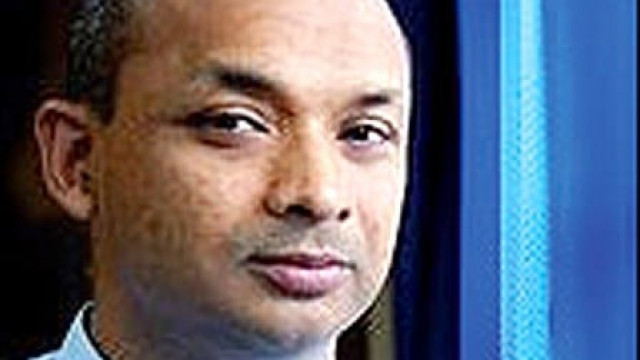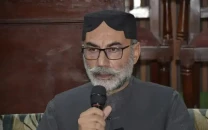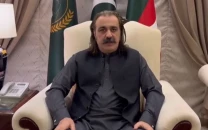Peace momentum stalls as moods change
The India-Pakistan foreign ministers’ meeting ended in tension and disagreement by evening.

This was striking because both Indian and Pakistani officials had told media earlier in the day that talks were “going well” and progress was being made. But a noontime press conference was repeatedly postponed and eventually held only at eight at night.
Krishna and Qureshi made separate statements that sought to emphasise that their talks were part of an ongoing process, that given the “complex” relations between the two countries no one should expect quick results. But it was obvious the two sides had failed to agree on anything, even the confidence-building measures regarding imprisoned fishermen and making the Line of Control more porous that had been widely expected.
Pakistan iterated previous statements that terrorism was a “common concern” and that the “mood” in Pakistan regarding this menace had changed.
There were reports that negotiations had gone askew because of New Delhi’s insistence that any joint agreement had to include something tangible on terrorism, no matter how small, from Pakistan. When that was not forthcoming, negotiations on other less contentious issues foundered.
Pakistan had focused on getting India to commit itself to a resumption of a broad-based dialogue which included terrorism. Given the strength of public opinion in India regarding Mumbai and the lack of support Prime Minister Manmohan Singh has within his own government for the peace process, this is politically unsaleable in New Delhi.
After the positive momentum that was generated at the South Asian Association for Regional Cooperation summit in Thimpu and the subsequent meeting of home and interior ministers in Islamabad has clearly stalled. While the drop has been remarkably sharp and quick, the fact is that this sort of rupture was inevitable. The Mumbai terrorist attack was a rock lurking under the diplomatic waters and the peace process was inevitably going to have to find a way to navigate beyond it.
The foreign ministers’ meeting was the first encounter with this problem and revealed it still remained to potent to be either forgotten or pushed off till a later date. Qureshi will now visit New Delhi and it can be expected that both sides will once again attempt to bridge the “trust deficit”. As both ministers insisted, the Thimpu process will continue. However, there should no longer be any illusions that it will be as easy and simple as some had believed earlier.
The writer is the Foreign Editor of The Hindustan Times and is accompanying the Indian delegation to Pakistan
Published in The Express Tribune, July 16th, 2010.



















COMMENTS
Comments are moderated and generally will be posted if they are on-topic and not abusive.
For more information, please see our Comments FAQ